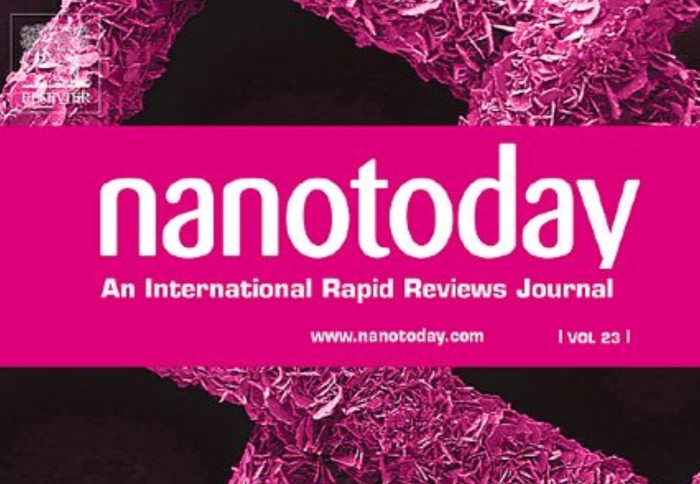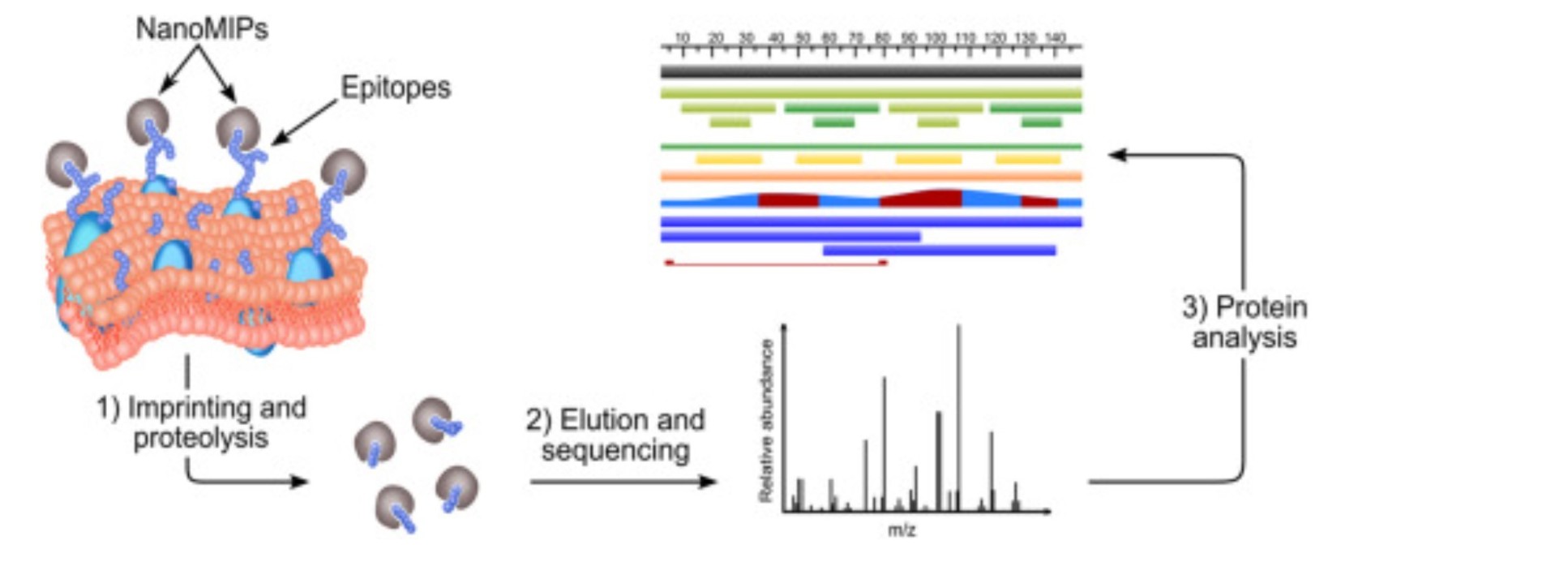Sept 2021 - Article Published in Nano Today

Nano Today
Stas Piletsky's paper using Molecular Imprinted Polymers (MIPs) to discover epitopes of utility for targeting cancers is published in Nano Today.
Stanislav S. Piletsky, Elena Piletsky, Marta Poblocka, Salvador Macip, Donald J.L.Jones, Marta Bragah, Thong H. Cao, Rajinder Singh, Alan C. Spivey, Eric O. Aboagy, Sergey A. Piletsky, ‘Snapshot imprinting: rapid identification of cancer cell surface proteins and epitopes using molecularly imprinted polymers’ Nano Today, 2021, 41, 101304. DOI: https://doi.org/10.1016/j.nantod.2021.101304

Proteomic mapping of cell surfaces is an invaluable tool for drug development and clinical diagnostics. This work describes a new ‘snapshot imprinting’ method designed to obtain proteomic maps of cell surfaces, with the aim of identifying cell surface markers and epitopes for diagnostic and therapeutic applications. The analysis of two cancer cell lines, HN5 and MDA-MB-468, is described herein as a proof of concept, along with the selective targeting of three identified epitopes of epidermal growth factor receptor using molecularly imprinted polymer nanoparticles. 438 proteins were identified using this technique, with 283 considered to be transmembrane or extracellular proteins. The major advantage of the molecular imprinting approach developed here is the ability to analyse cell surface proteins without tedious fractionation, affinity separation or labelling. We believe that this system of protein analysis may provide a basic molecular diagnostics toolbox for precise, personalised treatment of cancer and other diseases.
Article text (excluding photos or graphics) © Imperial College London.
Photos and graphics subject to third party copyright used with permission or © Imperial College London.
Reporter
Professor Alan C Spivey
Department of Chemistry